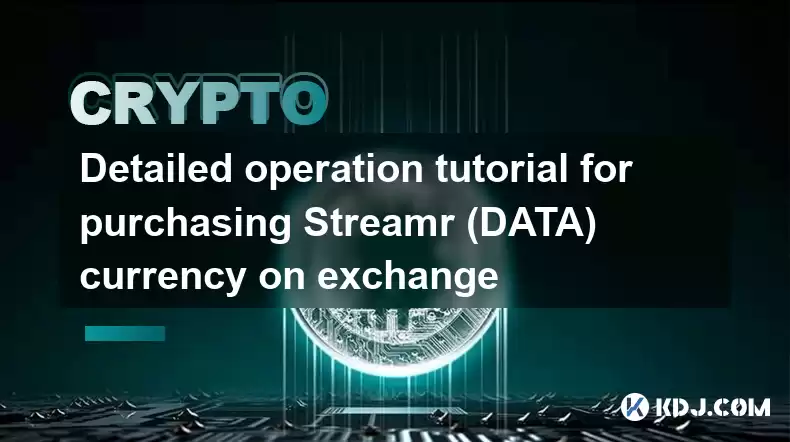-
 Bitcoin
Bitcoin $115000
0.12% -
 Ethereum
Ethereum $3701
4.50% -
 XRP
XRP $3.081
2.99% -
 Tether USDt
Tether USDt $0.0000
-0.01% -
 BNB
BNB $767.9
1.45% -
 Solana
Solana $169.5
3.13% -
 USDC
USDC $0.9999
0.01% -
 Dogecoin
Dogecoin $0.2106
4.30% -
 TRON
TRON $0.3334
1.62% -
 Cardano
Cardano $0.7564
2.54% -
 Stellar
Stellar $0.4165
0.76% -
 Hyperliquid
Hyperliquid $38.75
0.25% -
 Sui
Sui $3.593
3.00% -
 Chainlink
Chainlink $17.08
3.59% -
 Bitcoin Cash
Bitcoin Cash $573.6
4.35% -
 Hedera
Hedera $0.2508
-0.84% -
 Avalanche
Avalanche $23.07
6.46% -
 Ethena USDe
Ethena USDe $1.001
-0.02% -
 Litecoin
Litecoin $120.8
8.17% -
 UNUS SED LEO
UNUS SED LEO $8.943
-0.32% -
 Toncoin
Toncoin $3.400
-5.60% -
 Shiba Inu
Shiba Inu $0.00001255
1.54% -
 Uniswap
Uniswap $9.908
6.32% -
 Polkadot
Polkadot $3.718
2.10% -
 Monero
Monero $303.0
-0.74% -
 Dai
Dai $0.9999
-0.02% -
 Bitget Token
Bitget Token $4.392
0.91% -
 Cronos
Cronos $0.1403
6.31% -
 Pepe
Pepe $0.00001076
1.13% -
 Aave
Aave $267.2
1.80%
Detailed operation tutorial for purchasing Streamr (DATA) currency on exchange
To purchase DATA, register for an account on a suitable cryptocurrency exchange, verify your identity, deposit funds, and place a buy order, specifying the quantity and type of order.
Jan 04, 2025 at 03:09 am

Key Points
- Understanding the basics of Streamr (DATA)
- Choosing a suitable cryptocurrency exchange
- Registering and verifying your account
- Depositing funds into your account
- Placing a buy order for DATA
- Completing the purchase and withdrawing DATA
Detailed Operation Tutorial
Step 1: Understand Streamr (DATA)
Streamr (DATA) is a decentralized platform for real-time data streams, enabling the seamless exchange of data between various applications and devices. DATA, the native token of Streamr, is used for several purposes within the ecosystem, including:
- Brokerage Fees: Payment for data access and usage on the Streamr network.
- Incentivization: Rewarding data contributors and network validators for their contributions.
- Governance: Participation in the decision-making process of the Streamr ecosystem through voting and proposals.
Step 2: Choose a Suitable Cryptocurrency Exchange
Multiple cryptocurrency exchanges offer DATA trading, but choosing the right platform is crucial. Consider the following factors:
- Trading Volume: Ensure the exchange has sufficient DATA trading volume to provide liquidity for your transactions.
- Fees: Analyze the trading fees, withdrawal fees, and other applicable charges associated with the platform.
- Security: Prioritize exchanges with robust security measures to safeguard your funds and personal information.
Step 3: Register and Verify Your Account
To purchase DATA, you need to register and verify your account on the chosen exchange. This typically involves:
- Providing your email address, name, and country of residence.
- Uploading a government-issued identification document for identity verification.
- Completing additional verification steps as required by the exchange.
Step 4: Deposit Funds into Your Account
Once your account is verified, you need to deposit funds into it to cover the DATA purchase. Most exchanges support multiple deposit methods, including:
- Bank transfer: Initiating a wire transfer from your bank account to the exchange's designated bank details.
- Credit/Debit card: Using a Visa or Mastercard to fund your account. Note that card deposits may incur higher fees.
- Cryptocurrency transfer: Transferring existing cryptocurrencies from another wallet or exchange to your exchange account.
Step 5: Place a Buy Order for DATA
After funding your account, navigate to the DATA trading page on the exchange. Here, you can place a buy order for DATA by specifying the following:
- Order Type: Choose a market order for immediate execution at the current market price or a limit order to set a specific price at which you want to buy DATA.
- Quantity: Input the number of DATA tokens you wish to purchase.
- Price (for Limit Orders): Specify the desired price at which you want to execute your order.
Step 6: Complete the Purchase and Withdraw DATA
Once your buy order is placed, it will be processed by the exchange, and DATA will be added to your exchange wallet. You can then choose to hold your DATA on the exchange or withdraw it to a personal wallet for increased security.
FAQs
What is the difference between a market order and a limit order?
- A market order executes immediately at the current market price, while a limit order only executes if the market price reaches a specified target price.
How long does it take to purchase DATA?
- The time taken to purchase DATA depends on the exchange's processing time and the type of order placed. Market orders usually execute instantly, while limit orders may take longer to fill.
Is it safe to store DATA on an exchange?
- Storing DATA on an exchange is generally secure, but it is recommended to withdraw your DATA to a personal wallet for enhanced security.
Disclaimer:info@kdj.com
The information provided is not trading advice. kdj.com does not assume any responsibility for any investments made based on the information provided in this article. Cryptocurrencies are highly volatile and it is highly recommended that you invest with caution after thorough research!
If you believe that the content used on this website infringes your copyright, please contact us immediately (info@kdj.com) and we will delete it promptly.
- Bitcoin, Fed Rate Cut, and Crypto Stocks: A New Yorker's Take
- 2025-08-05 14:50:12
- Police, Cryptocurrency, Bitcoin Windfall: Unexpected Gains and Cautionary Tales
- 2025-08-05 15:30:12
- MAGACOIN: The Next Shiba Inu ROI? A Crypto Presale Deep Dive
- 2025-08-05 15:30:12
- Bitcoin, Kiyosaki, and the August Curse: Will History Repeat?
- 2025-08-05 14:50:12
- Crypto Airdrops: Your August 2025 Guide to Free Tokens & Opportunities
- 2025-08-05 13:45:13
- Luxury Dining Reimagined: St. Regis Singapore & Marriott's Culinary Celebration
- 2025-08-05 13:45:13
Related knowledge

What is Chainlink (LINK)?
Jul 22,2025 at 02:14am
Understanding Chainlink (LINK): The Decentralized Oracle NetworkChainlink is a decentralized oracle network designed to bridge the gap between blockch...

What is Avalanche (AVAX)?
Jul 22,2025 at 08:35am
What is Avalanche (AVAX)?Avalanche (AVAX) is a decentralized, open-source blockchain platform designed to support high-performance decentralized appli...

What is Polkadot (DOT)?
Jul 19,2025 at 06:35pm
Understanding the Basics of Polkadot (DOT)Polkadot (DOT) is a multi-chain network protocol designed to enable different blockchains to transfer messag...

What is Litecoin (LTC)?
Jul 23,2025 at 11:35am
Overview of Litecoin (LTC)Litecoin (LTC) is a peer-to-peer cryptocurrency that was created in 2011 by Charlie Lee, a former Google engineer. It is oft...

What is Monero (XMR)?
Jul 21,2025 at 10:07am
What is Monero (XMR)?Monero (XMR) is a decentralized cryptocurrency designed to provide enhanced privacy and anonymity for its users. Unlike Bitcoin a...

How to add indicators to Ethereum chart on TradingView?
Jul 19,2025 at 07:15am
What Is an Ethereum Chart on TradingView?The Ethereum chart on TradingView is a visual representation of the price movement of Ethereum (ETH) over a s...

What is Chainlink (LINK)?
Jul 22,2025 at 02:14am
Understanding Chainlink (LINK): The Decentralized Oracle NetworkChainlink is a decentralized oracle network designed to bridge the gap between blockch...

What is Avalanche (AVAX)?
Jul 22,2025 at 08:35am
What is Avalanche (AVAX)?Avalanche (AVAX) is a decentralized, open-source blockchain platform designed to support high-performance decentralized appli...

What is Polkadot (DOT)?
Jul 19,2025 at 06:35pm
Understanding the Basics of Polkadot (DOT)Polkadot (DOT) is a multi-chain network protocol designed to enable different blockchains to transfer messag...

What is Litecoin (LTC)?
Jul 23,2025 at 11:35am
Overview of Litecoin (LTC)Litecoin (LTC) is a peer-to-peer cryptocurrency that was created in 2011 by Charlie Lee, a former Google engineer. It is oft...

What is Monero (XMR)?
Jul 21,2025 at 10:07am
What is Monero (XMR)?Monero (XMR) is a decentralized cryptocurrency designed to provide enhanced privacy and anonymity for its users. Unlike Bitcoin a...

How to add indicators to Ethereum chart on TradingView?
Jul 19,2025 at 07:15am
What Is an Ethereum Chart on TradingView?The Ethereum chart on TradingView is a visual representation of the price movement of Ethereum (ETH) over a s...
See all articles

























































































